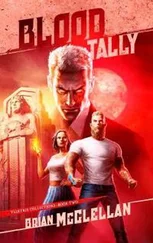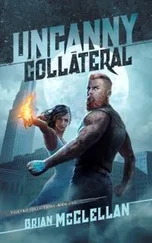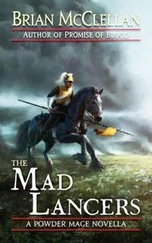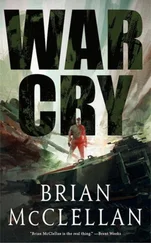Somewhere nearby, a frantically gathered group of labor camp officials would convene to decide what to do with him. They’d circulate that note from the Lady Chancellor’s office, trying to read between the lines, wondering if they were supposed to keep him alive or if they could get away with finishing the job the military had started with a firing squad ten years ago.
Styke tried to remember if he’d killed anyone after the parole hearing. The whole fight was a bit hazy – screams, swinging truncheons, lashing fists. He’d kept his head enough not to draw his whittling knife – which they’d now confiscated – but he remembered breaking at least a few arms. He’d gone into the fight angry, and it was hard to keep his head when he was angry.
If he’d murdered a guard or two, he’d swing from the gallows by sunup regardless of whether the Lady Chancellor wanted him left alive or not.
He wanted to be angry with himself, but couldn’t even muster the energy for that anymore. Five years since he’d last spoken back to a guard. Seven since he’d swung a fist, and eight since he’d tried to escape. All that in the vain hope that they’d let him walk after a parole hearing. He’d spend the next six months in the hole, for sure, and after that it would take years before he got any privileges back.
He sat up. To pit with sitting in the hole. What was going to happen to Celine? Her dad was dead, sucked under while digging ditches in the marshes. Styke was all she had. Without him, she’d be meat for the guards and inmates. She wouldn’t last the season.
“Eight guards beat the piss out of you, and just a few hours later you’re already sitting up.”
Styke’s head jerked toward the front of the cell, expecting one of the guards in their yellow frocks to be waiting for his turn with a truncheon. Instead, he found a man in a black suit and top hat, cane under his arm, wearing boots shined to a mirrorlike polish.
The man was tall and thin, with the lean shoulders of a duelist. He had a distinctive, hawkish face behind a black goatee and cold blue eyes. He looked to be in his thirties. Taking his cane in one hand, he tapped the cell bars. “Most people would never wake up from a beating like that. You really are damned near unkillable, aren’t you?”
Styke regarded the stranger warily. Nobody dressed that well belonged in a labor camp, and certainly not standing outside the holding cells. “You see it happen?” he asked cautiously.
“I did, actually.” A half smile danced across the stranger’s lips.
“Did I kill anyone?” Styke asked.
“Cracked a few heads,” the man said. “But they’ll all survive. It was impressive. I’m happy to see ten years of hard labor haven’t taken the fight out of you.”
Styke peered closer at the stranger, once again feeling like they should know each other. “You know who I am?”
“Does that surprise you?”
“I’ve been officially dead for ten years. My own parole judge thought I was ‘some other Ben Styke.’”
The man paced up and down the hallway outside Styke’s cell, then leaned against the wall as if the dust it would leave on his expensive suit was of little consequence. “Mad Ben Styke was a hero of the revolution. The Mad Lancers were a legend.” He grinned. “Besides, we’ve met before.”
Somehow, that didn’t surprise Styke. There was something vaguely familiar about him, like Styke had seen his portrait over someone’s mantel. “I don’t remember you.”
“Gregious Tampo, Esquire,” the man said with a half bow.
“A lawyer?” Styke asked. “I haven’t met many lawyers.”
“Not back then,” Tampo said. “I was a soldier. Dragoons attached to the Thirty-Second Regiment. Defected from the Kez foreign legion when the war started.”
In any other country, the word “defector” was a curse. But among the Fatrastans it was a badge of pride. Just about everyone who fought in the revolution against the Kez was a defector of some sort. Styke searched his memory, trying to find some clue that would allow him to recall this stranger. But the name meant nothing. Maybe he’d remember something once his ears stopped ringing and the pain faded. “Doesn’t ring a bell. No offense.”
“None taken. We only crossed paths briefly.”
There was a time Styke would have embraced a fellow soldier, offered him a beer, and spent the night trading stories. Not anymore. Ghosts from the past rarely boded well in the labor camps. New inmates meant another set of someone else’s problems, and new guards meant more habits and mentalities to learn. But he found himself taken with this Tampo. Soldiers had an understanding with one another that most people couldn’t grasp – a bond forged by victory, violence, and even defeat.
“Well,” Styke said. He touched the side of his head gingerly, then tried to stand up. The guards hadn’t managed to break any bones – it took more than truncheons to crack Ben Styke – but his head swam something fierce and it took a few moments to gain his feet without collapsing. He stretched his arms out, touching either side of the cell with his fingertips, working out the kinks in his back. “Thanks for the chat. It’s good to hear someone remembers my name. But you’ll want to get out of here before the guards return.”
“They won’t be bothering us.”
“They make rounds pretty often.”
“A handful of krana makes a strong impression.”
Styke paused his stretching and blinked through the pain behind his eyes. “Are you here to see me ?” he asked, incredulous. One of those guards must have landed a particularly strong blow to his head. In ten years he’d not had a single visitor.
“I actually came for your parole hearing,” Tampo said. He tapped his cane against the ground a few times, fiddling with the end as if annoyed with himself. “Traffic held me up, so I was ten minutes late. Arrived just in time to see your scuffle with the guards.”
This gave Styke pause. “I didn’t even know when my hearing would be until this morning. How did you?”
“I have friends.”
Styke took a half step toward Tampo, stopping just short of the iron bars. “You’re not the one who gave my parole officer that note, are you?”
Tampo scowled. “What note?”
Styke thought about telling Tampo about the note from the Lady Chancellor’s office, but everything he had to say sounded awfully whiny in his head. Besides, Tampo was a stranger, and Styke had already blabbed too much. It was best to clam up and wait for judgment from the camp administrators. He paced to the other end of the cell, then back. “So you bribed the guards to get to talk with me. I’m guessing it wasn’t just to chat about the war.”
“No,” Tampo said matter-of-factly. “It’s not.”
“Then what could you possibly want from me?”
“I’d like to offer you a job.”
Styke threw his head back and laughed. It was cut short by a strange clicking from his jaw, and the pounding headache that accompanied it. He winced, shaking his head, then met Tampo’s eye. The lawyer was still leaning against the wall, and he looked slightly put out at having been laughed at. “By the pit, you’re serious.”
“Of course I’m serious. You don’t think I’d come all the way down to the labor camp just to make a joke with a man the world thinks is dead, do you?”
“You going to offer me a job when I get out of here?” Styke retorted. “Because that’s likely to be a very long time.”
“On the contrary.” Tampo checked a pocket watch. “If you accept my proposal, I expect you’ll be standing outside the gates of the labor camp within fifteen minutes.”
“Bullshit,” Styke said. Any humor or comradeship he felt toward Tampo was gone, replaced by a cold anger. Was he being mocked? Played with? Was Tampo an agent of the Lady Chancellor’s, come to toy with him? This was cruel, even by her standards.
Читать дальше










